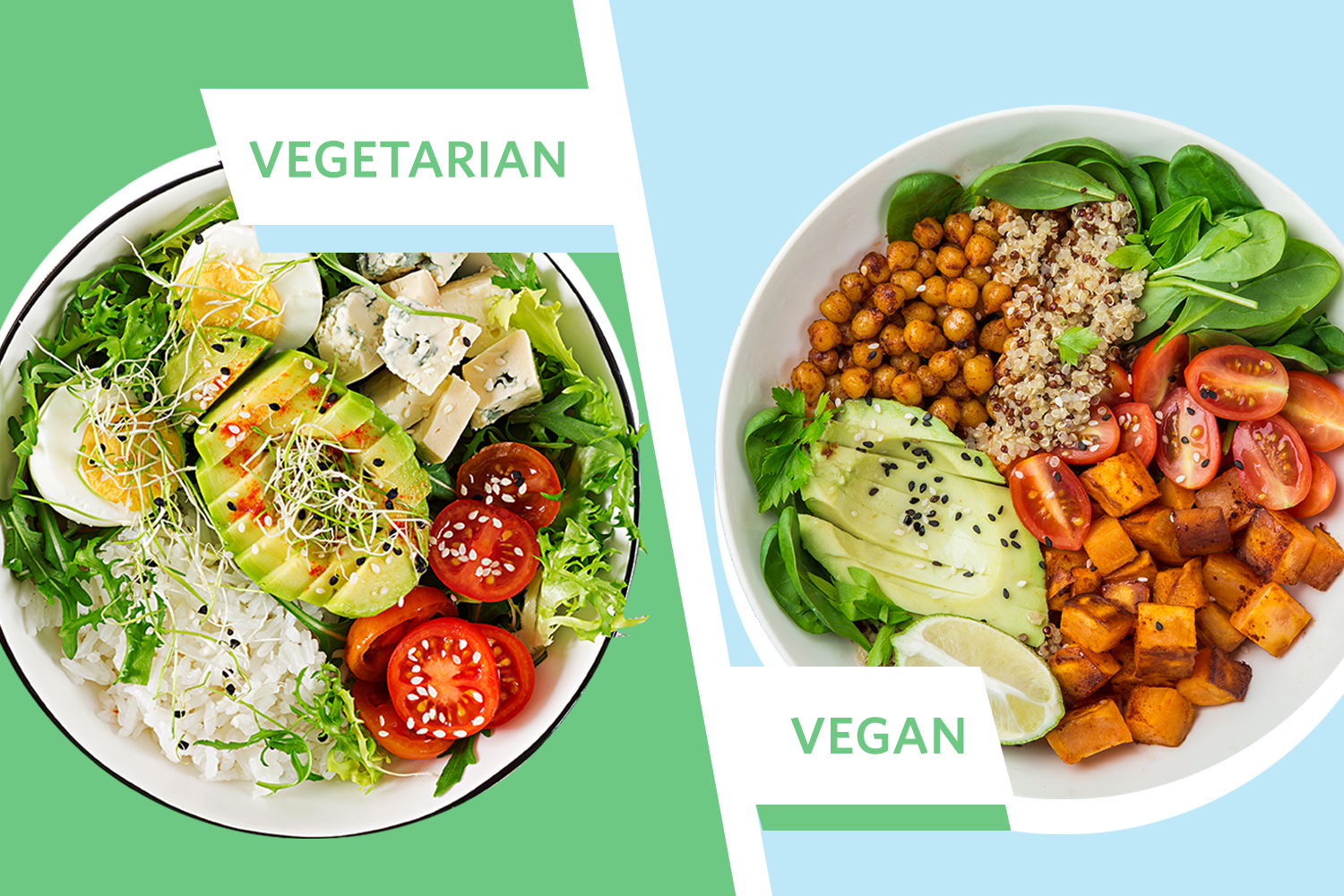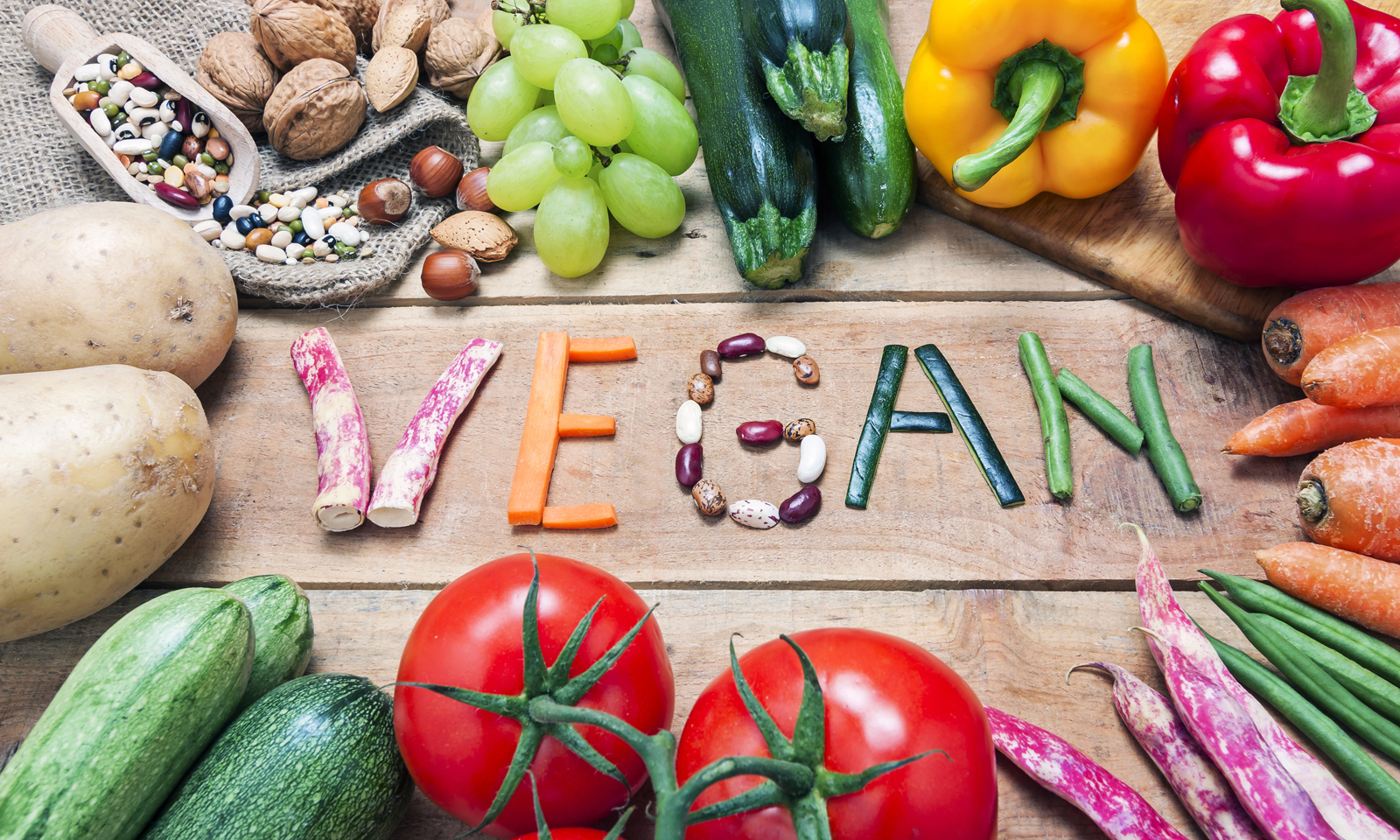Discover The Ultimate Collection Of Vegan Delicacies
What is veganism?
Veganism is a type of diet that excludes all animal products, including meat, dairy, eggs, and honey. Vegans also avoid using animal products in other areas of their lives, such as clothing, cosmetics, and household products.
There are many reasons why people choose to adopt a vegan lifestyle. Some people do it for ethical reasons, as they believe that it is wrong to exploit and kill animals for food. Others do it for health reasons, as a vegan diet has been shown to have many health benefits, including reducing the risk of heart disease, stroke, type 2 diabetes, and some types of cancer.
- Sara Haines Twin
- What Happened To Peter Attia
- George And Amal Clooney Kids
- Aurora Aksnes Relationships
- Ivanka Cerovac Balerina
Whatever the reason, veganism is a growing trend. In the United States, the number of vegans has increased by 300% in the past decade. And it's not just in the US - veganism is becoming more popular all over the world.
If you're considering adopting a vegan lifestyle, there are many resources available to help you get started. There are cookbooks, websites, and support groups dedicated to helping vegans make the transition to a plant-based diet.
Veganism
Veganism is a lifestyle that excludes all animal products. This includes meat, dairy, eggs, honey, and any other products that are derived from animals.
- Ethical: Vegans believe that it is wrong to exploit and kill animals for food.
- Health: A vegan diet has been shown to have many health benefits, including reducing the risk of heart disease, stroke, type 2 diabetes, and some types of cancer.
- Environmental: Animal agriculture is a major contributor to climate change, water pollution, and deforestation.
- Social justice: The vegan movement is also about social justice. Vegans believe that all beings deserve to be treated with compassion and respect, regardless of their species.
- Community: There is a strong sense of community among vegans. Vegans support each other and work together to promote a more compassionate and sustainable world.
These are just a few of the key aspects of veganism. It is a complex and multifaceted issue, but at its core, it is about compassion for all beings.
Ethical
This ethical belief is one of the core tenets of veganism. Vegans believe that all animals are sentient beings who deserve to live free from suffering. They believe that it is wrong to exploit and kill animals for food, clothing, or any other purpose.
There are many reasons why vegans hold this ethical belief. Some vegans are motivated by compassion for animals. They believe that it is wrong to inflict pain and suffering on any living being, regardless of their species. Other vegans are motivated by a belief in animal rights. They believe that animals have the right to live free from human exploitation.
Whatever their reasons, vegans believe that it is important to live a life that is aligned with their ethical values. They believe that veganism is the best way to do this, as it is a way of living that respects the rights of all animals.
The ethical belief that animals should not be exploited or killed for food is a key part of veganism. It is a belief that is based on compassion, respect, and justice.
Health
A vegan diet is one that excludes all animal products, including meat, dairy, eggs, and honey. There is a growing body of evidence that suggests that a vegan diet can have many health benefits, including reducing the risk of heart disease, stroke, type 2 diabetes, and some types of cancer.
One of the main reasons why a vegan diet is so healthy is because it is rich in fruits, vegetables, and whole grains. These foods are all low in saturated fat and cholesterol, and they are high in fiber, vitamins, and minerals. A vegan diet is also typically lower in calories than a diet that includes animal products.
There is a growing body of research that supports the health benefits of a vegan diet. For example, a study published in the Journal of the American Medical Association found that vegans have a 24% lower risk of heart disease than meat-eaters. Another study, published in the journal Stroke, found that vegans have a 20% lower risk of stroke than meat-eaters.
A vegan diet can also help to reduce the risk of type 2 diabetes. A study published in the journal Diabetes Care found that vegans have a 34% lower risk of developing type 2 diabetes than meat-eaters.
In addition to reducing the risk of chronic diseases, a vegan diet can also help to improve overall health and well-being. Vegans typically have lower blood pressure, cholesterol levels, and body weight than meat-eaters. They also tend to have more energy and vitality.
If you are considering adopting a vegan diet, there are many resources available to help you get started. There are cookbooks, websites, and support groups dedicated to helping vegans make the transition to a plant-based diet.
Environmental
Animal agriculture is a major contributor to climate change, water pollution, and deforestation. The raising of animals for food requires large amounts of land, water, and energy. It also produces greenhouse gases, which contribute to climate change. Additionally, the runoff from animal farms can pollute waterways, and the clearing of forests to create grazing land can contribute to deforestation.
- Climate change: Animal agriculture is responsible for 18% of greenhouse gas emissions worldwide. These emissions come from the production of animal feed, the transportation of animals, and the processing of animal products.
- Water pollution: Animal agriculture is a major source of water pollution. The runoff from animal farms can contain harmful bacteria, nutrients, and chemicals that can contaminate waterways.
- Deforestation: The clearing of forests to create grazing land is a major contributor to deforestation. Forests are important for absorbing carbon dioxide and providing habitat for wildlife.
Veganism is a way of reducing our impact on the environment. By choosing to eat a plant-based diet, we can help to reduce the demand for animal products and the associated environmental impacts.
Social justice
The vegan movement is about more than just food. It is also about social justice. Vegans believe that all beings deserve to be treated with compassion and respect, regardless of their species. This belief extends to all animals, humans, and the environment.
- Animal rights: Vegans believe that animals have the right to live free from exploitation and suffering. They believe that it is wrong to kill, harm, or use animals for food, clothing, or any other purpose.
- Human rights: Vegans believe that all humans deserve to have access to healthy, affordable food. They believe that the current food system, which is based on animal agriculture, is unjust and unsustainable.
- Environmental justice: Vegans believe that the environment is a precious resource that we must protect. They believe that animal agriculture is a major contributor to climate change, water pollution, and deforestation.
The vegan movement is working to create a more just and sustainable world for all. By choosing to eat a plant-based diet, we can help to create a more compassionate and sustainable future.
Community
The vegan community is a diverse and welcoming group of people who are passionate about promoting a more compassionate and sustainable world. Vegans support each other through online forums, social media groups, and local meetups. They also work together to organize events, campaigns, and other initiatives to raise awareness about veganism and its benefits.
The vegan community is important for a number of reasons. First, it provides a sense of belonging and support for people who may feel isolated or marginalized because of their dietary choices. Second, it helps to spread awareness about veganism and its benefits. Third, it provides a platform for vegans to work together to create a more compassionate and sustainable world.
There are many examples of the positive impact that the vegan community has had on the world. For example, the vegan community has played a major role in raising awareness about the environmental impact of animal agriculture. The community has also been instrumental ining the development of new vegan products and services. And, the community has been a source of support for vegans who are facing discrimination or harassment.The vegan community is a powerful force for good in the world. By supporting each other and working together, vegans are creating a more compassionate and sustainable future for all.FAQs About Veganism
Veganism is a lifestyle that excludes all animal products, including meat, dairy, eggs, and honey. It is a growing trend, with more and more people choosing to adopt a vegan lifestyle for ethical, environmental, and health reasons.
Question 1: Is veganism healthy?
Answer: Yes, a vegan diet can be healthy and nutritionally complete. It is important to eat a variety of plant-based foods to ensure that you are getting all the nutrients your body needs.
Question 2: Is veganism expensive?
Answer: No, a vegan diet can be just as affordable as a non-vegan diet. There are many affordable vegan foods available, such as beans, lentils, rice, and vegetables.
Question 3: Is veganism difficult?
Answer: No, veganism is not difficult to follow. There are many resources available to help you get started, such as cookbooks, websites, and support groups.
Question 4: What are the benefits of veganism?
Answer: There are many benefits to veganism, including improved health, reduced environmental impact, and reduced animal suffering.
Question 5: What are some common misconceptions about veganism?
Answer: Some common misconceptions about veganism include that it is unhealthy, expensive, and difficult to follow. These misconceptions are not true.
Question 6: How can I get started with veganism?
Answer: There are many resources available to help you get started with veganism, such as cookbooks, websites, and support groups.
Summary of key takeaways or final thought: Veganism is a healthy, affordable, and compassionate lifestyle. It is a growing trend, with more and more people choosing to adopt a vegan lifestyle for ethical, environmental, and health reasons.
Transition to the next article section: If you are interested in learning more about veganism, there are many resources available online and in your community.
Conclusion
Veganism is a growing trend for many reasons. It is a healthy, affordable, and compassionate lifestyle. Vegans believe that all beings deserve to be treated with respect and compassion, regardless of their species. Veganism is a way to reduce our impact on the environment, improve our health, and create a more just and sustainable world.
If you are interested in learning more about veganism, there are many resources available online and in your community. You can also connect with other vegans through online forums, social media groups, and local meetups. The vegan community is a welcoming and supportive group of people who are passionate about creating a more compassionate and sustainable world.
- Anna Malugon Leaked
- Is Mike Rowe Married
- Wentworth Earl Miller Ii
- Amal Clooney Ungeschminkt
- Ivanka Cerovac Balerina

Vegan Diet 101 A Comprehensive Beginner's Guide

Difference between Vegan vs. PlantBased and Vegetarian Cooking tips

VEGANISM A TRUTH WHOSE TIME HAS COME What Every Vegan Needs to Know